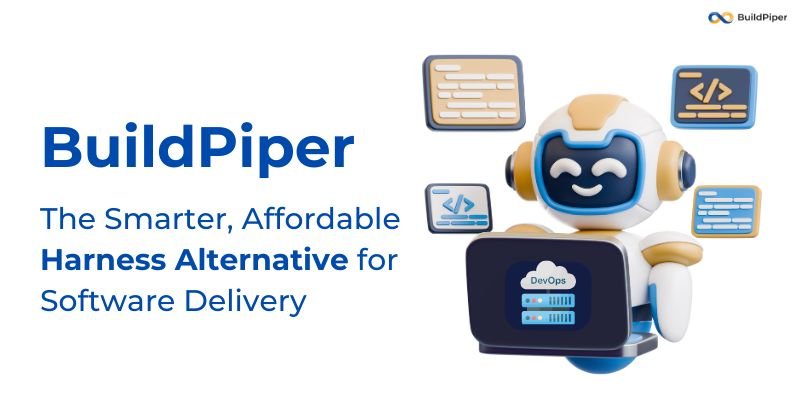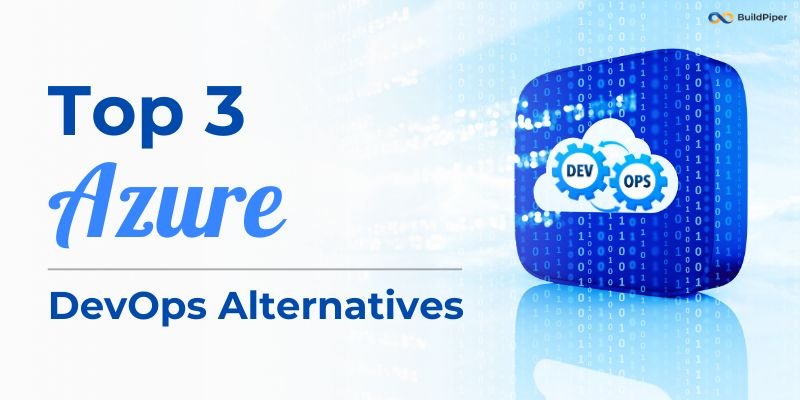In the dynamic realm of modern software development and operations, terms such as Platform Engineering, DevOps and Site Reliability Engineering (SRE) are frequently used, sometimes interchangeably, often causing confusion among professionals entering or navigating these domains. Understanding the nuanced distinctions between these concepts is crucial for organizations striving to build robust and scalable systems.
In this blog, we’ll embark on a journey to unravel the intricacies of Platform Engineering, DevOps and SRE. We’ll delve into the unique focus, roles and practices that define each discipline, shedding light on how they contribute to the overall tapestry of creating reliable, efficient and scalable software ecosystems. Here, in this blog, we’ll demystify these critical aspects of the tech landscape, providing clarity to our users.
What sets Platform Engineering apart from DevOps and SRE?
Platform Engineering, DevOps and Site Reliability Engineering (SRE) are related but distinct disciplines that contribute to the development and operation of reliable and scalable software systems. Enterprises today are adopting platform engineering best practices to reduce product delivery and increase developer productivity. Here’s a brief overview of each, highlighting their key differences:
DevOps (Development and Operations)
- Focus: DevOps is a cultural and collaborative approach to software development and IT operations. It emphasizes breaking down silos between development and operations teams to improve communication, collaboration and efficiency throughout the software development lifecycle.
- Roles: DevOps is more of a cultural philosophy than a specific job role. It encourages developers to take on operational responsibilities and operations teams to be involved in the development process.
- Practices: DevOps practices include continuous integration, continuous delivery, automated testing and infrastructure as code. Introducing techniques such as Observability in Platform Engineering helps DevOps teams identify issues.
Site Reliability Engineering (SRE)
- Focus: SRE is a specific set of practices within the broader DevOps framework that focuses on the reliability and availability of systems. SRE aims to create scalable and highly reliable software systems by applying engineering principles to operations tasks.
- Roles: SREs are specialists who work on ensuring the reliability of systems. They often have a strong background in software engineering and use software engineering practices to solve operational problems.
- Practices: SRE introduces concepts such as error budgets, service level objectives (SLOs) and service level indicators (SLIs) to measure and manage the reliability of services.
Platform Engineering
- Focus: Platform Engineering is concerned with building and maintaining the foundational platform and infrastructure that enables software development and deployment. This includes tools, frameworks and services that support developers in building, deploying and operating their applications.
- Roles: Platform Engineers are responsible for designing, implementing and maintaining the platform that supports application development. They work on building tools and services that make it easier for developers to deploy and operate their applications.
- Practices: CI/CD for Platform Engineering involves creating self-service platforms, automating delivery pipelines & infrastructure provisioning and managing the underlying infrastructure efficiently.
While DevOps is a cultural and collaborative approach to development and operations, SRE is a set of practices focused on ensuring system reliability and Platform Engineering is about building and maintaining the foundational platform for software development. They are interconnected and organizations often adopt a combination of these approaches to achieve their goals of delivering reliable and scalable software systems.
Importance of Platform Engineering
Platform engineering strategies play a crucial role in modern software development and IT operations. It involves creating and maintaining the foundational infrastructure, frameworks and tools that enable the development, deployment and operation of applications. Here are several key reasons why using CI/CD for platform engineering is important:
- Efficiency and Productivity: By using Platform engineering best practices, DevOps teams can focus on building reusable components and tools that streamline development processes. This leads to increased efficiency and productivity as developers can leverage existing platforms, frameworks, and services rather than reinventing the wheel for each project.
- Standardization: Platforms provide a standardised set of tools and frameworks that help maintain consistency across different projects. This standardization ensures that best practices are followed, reduces the learning curve for new developers, and makes it easier to manage and maintain the overall software ecosystem.
- Scalability: Using Platform engineering strategies helps in creating scalable solutions. By designing platforms that can easily scale horizontally or vertically, organizations can handle increased workloads, accommodate growing user bases and adapt to changing business requirements without significant overhauls.
- Reliability and Stability: A well-engineered platform provides a stable foundation for applications. It includes features such as fault tolerance, monitoring and automated recovery mechanisms, which contribute to the overall reliability of the system. This is particularly important in mission-critical applications where downtime can have serious consequences. By introducing observability in platform engineering, DevOps teams can identify issues and fix errors at an advanced rate.
- Automation: Platform engineering emphasizes the automation of repetitive tasks, reducing manual effort and the likelihood of human error. Platform engineering automation can cover various aspects of the development and operations lifecycle, including code deployment, testing, monitoring and scaling.
- Cross-Functional Collaboration: Platforms often serve as a common ground for different teams within an organization, fostering collaboration between development, operations and other stakeholders. This collaboration is essential for aligning efforts, sharing knowledge, and delivering successful projects.
- Adaptability and Innovation: A well-designed platform is flexible and adaptable, allowing organizations to incorporate new technologies and methodologies as they emerge. This adaptability is crucial for staying competitive and fostering innovation in the rapidly evolving landscape of technology.
- Cost Efficiency: By promoting reusability, automation and efficiency, platform engineering automation can contribute to cost savings in terms of development time, infrastructure usage and operational expenses. This is especially important for organizations looking to optimize their resources.
- Security: Security is a critical concern in software development, and platforms can include built-in security features and best practices. Platform engineers can implement and maintain security measures to protect against common threats, reducing the risk of vulnerabilities in the overall system.
Platform engineering is essential for creating a robust, efficient and scalable foundation for software development and operations. It enables organizations to deliver high-quality products, respond to changing requirements and maintain a competitive edge in the dynamic world of technology.
Summing it UP!
As we conclude this blog on Platform Engineering, DevOps and Site Reliability Engineering (SRE), it becomes evident that these disciplines, while interconnected, bring unique strengths to the table. CI/CD for Platform Engineering acts as the architectural backbone, crafting the stage upon which software innovation can unfold seamlessly.
DevOps, as a cultural philosophy, encourages collaboration and harmony across development and operations, fostering an environment conducive to continuous improvement. In parallel, Site Reliability Engineering emerges as the guardian of reliability, employing engineering principles to fortify systems against the challenges of a dynamic digital landscape. Understanding these distinctions is akin to deciphering the various threads that together weave the fabric of modern software development and operations. Organizations seeking to thrive in this landscape must recognize the complementary nature of these disciplines, leveraging their strengths in harmony.
Embrace the diversity, harness the strengths and embark on a journey towards a software ecosystem that is not only functional but resilient, collaborative and poised for continual growth.









